Of orphans and orphanages
MUSINGS BY MARINA MAHATHIR
Children in orphanages, some of whom have parents, bring much emotional baggage to their new ‘homes’, baggage that is often not dealt with at all.
AMID our outcry about babies being dumped, there is one thing we forget. Those children who live need our attention, too.
Recently I went to visit what I thought was an orphanage. An orphanage, to me, is where orphans – children with no parents – live. As it turned out, I was to learn a lot about orphans and orphanages.
According to my host, orphans make up only a small percentage of the inhabitants of orphanages. The rest of the children who live there do have parents but are forced to live apart from them for various reasons.
Many have only one parent, usually the mother, who simply cannot afford to care for them. Some parents have moved on in their lives and just didn’t have space for their kids.
Still others actually have two parents but have been ordered by the court to live away from them because of abuse.
It’s hard to decide which are the saddest cases. One girl had lost both parents in a car accident, after which the courts gave custody of her and her siblings to their mother’s relatives.
Sadly, this did not make their lives better because their relatives apparently only wanted their inheritance. Once the inheritance was gone, they were shunted off to the orphanage.
Perhaps the relatives had never heard of the Quranic verse 4:2: “Hence, render unto the orphans their possessions, and do not substitute bad things [of your own] for the good things [that belong to them], and do not consume their possessions together with your own: this, verily, is a great crime.”
Another girl had been there for five years, even though in fact she had parents who were divorced. Each holiday she went “home” but because her father ignored her, it was always an unhappy visit.
By all accounts, this is a good orphanage because it is not over-crowded and the children are well fed, cared for and go to school. It is also open to motivational programmes, which was why I visited and talked to the girls.
Other orphanages are filled to the brim with kids from so many different backgrounds.
Some are true orphans, some are not; many have been abused.
What is certain is that they all bring much emotional baggage to their new “homes”, baggage which is often not dealt with at all.
We often see in the newspapers cute kids being taken on outings to the zoo, movies and other treats. But rarely do we enquire into the backgrounds of these kids to find out their stories.
It is probably that enquiry that they need most, for someone to ask them why they are there. If their stories are not dealt with, their emotional scars will not be revealed and they cannot heal.
Many years ago, a family friend from the United States adopted a little girl from an orphanage here.
When she returned to the States, she made it known that her new daughter had siblings who were also up for adoption.
A friend of hers adopted the brother and sister and everyone thought it would be a happy ending because all the siblings were living close to each other.
Sadly, both families went through years of difficulties with these children who for some reason did not feel secure enough to think of their new homes as permanent.
Who knows what caused them to think of running away from a safe comfortable home?
The last I heard, my friend’s daughter, now in her 20s, had finally stabilised and settled down, but I don’t know what happened to her siblings.
Having met the girls recently at the orphanage, I now realise that there is a wide range of child abuse. While the more visible forms of physical abuse are easy to spot, we don’t see the invisible forms, such as the emotional abuse that they may have undergone, sometimes by their own parents.
The question is, what do we do for these children? Are we really looking after all these children and helping them so that they may have an equal footing with kids who are luckier?
Children who have suffered violence and abuse, including sexual abuse, tend to go on to become violent and abusive adults. What do we do to prevent that?
What do we do to protect their rights? According to UN statistics, there are 410,000 orphans, presumably only those with no parents, in Malaysia. Curiously, we have no figures for how many are in school.
These days, with so many reports of fatal motor accidents, I wonder how many children they orphan and what really happens to them afterwards? How do we ensure justice for kids like these?
Nov 20 was Universal Children’s Day and the 21st anniversary of the Convention of the Rights of the Child.
Sign up at www.uniteagainstabuse.my if you think no child should be abused.
Love does not hurt nor hate
Putik Lada
By GENEVIENE TAN
When we discriminate against any member of a group or community, we act against the Constitution, against the Government’s latest calling: 1Malaysia.
“If you just learn a single trick, Scout, you’ll get along a lot better with all kinds of folks. You never really understand a person until you consider things from his point of view ... until you climb inside of his skin and walk around in it.” – Atticus Finch, To Kill A Mockingbird by Harper Lee.
TRY this. Take the person next to you right now. Now, try to imagine that you are him or her. Perhaps, you do not know enough about that person? OK, even if you did, would he or she actually act or feel like that?
Slowly, you may just realise this: he or she is not you. But, what if that person were you?
Think about this: the words “transsexual, transgender, homosexual, intersex (person born with female and male genitals)” are just names. Like your name is James or Sarah. However, these words specify the identity of a particular group or community in our society.
Let’s have a look at our Federal Constitution (“the Constitution”); see the design created that appears to include and binds every group and community of Malaysian people. Simply put, the Constitution serves everyone.
For example:
> All persons are equal before the law and entitled to the equal protection of the law. – Article 8.
> No person shall be deprived of his life or personal liberty save in accordance with the law. – Article 5
> This Constitution is the supreme law of the Federation and any law passed after Merdeka Day which is inconsistent with this Constitution shall, to the extent of the inconsistency, be void. – Article 4.
Clearly, the words “all persons”, “no person” alone shows that the Constitution does not discriminate against transgenders, transsexuals, non-heterosexuals, intersex and such people. Because if that were the case, why imprint these words onto the Constitution?
Meaning, Ah Boon with his noodles in the hawker stall is just as protected by the Constitution as Nanie, a mak nyah having her teh tarik at the mamak shop.
Ironically, when we discriminate against any member in these groups or communities, we act against the Constitution. Similarly, we act against the Government’s latest calling: 1Malaysia.
There has never been “1Malaysia, but ...”
But if you saw a mak pondan next to you right now, would you see her as a non-Malaysian?
Strangely, it would not be the first thing on your mind, would it? How would you feel if someone hurt you for being who you are? In fact, have you ever been hurt like that in your life?
Research also shows that in Malaysia, the transgendered community faces a daily living of rejection, marginalisation, hate, abuse, discrimination and brutality because they are what they are.
In addition, out of 16 countries around the East and Asia Pacific, only five, including Malaysia, deem male-to-male sex as illegal. One of the biggest nations in the world, China, does not decree male-to-male sex as illegal. Even Timor Leste considers it legal.
Are they actually dirty ... evil … wrong, or is it just what people have been telling you to think about them? Do you actually know of one, properly and personally? What if that very person they spoke so cruelly of … were you?
If one tries to analyse the words of 1Malaysia and the Constitution, this common thread may be seen: Malaysia is about peace, unity and equality.
Which makes a lot of sense, since it ties in with our Malaysian nature: “relak … chill la”. As a matter of fact, such spirit guide the law and the people therein, every day, to ensure that justice is served.
For example, the High Court, in the case of Re JG v Pengarah Jabatan Pendaftaran Negara, permitted a male-to-female to have her registration and identity card altered to suit her new gender.
James Foong J held: “She felt like a woman, lived like one, behaved as one, had her physical body attuned to one and, most important of all, her psychological thinking was that of a woman.
“In this case, the first prayer was for a declaration which the court had power under the Specific Relief Act 1950 to grant. As for the second prayer, it concerned only an administrative exercise and the defendant was empowered by law under S 6(2)(o) of the National Registration Act 1959 to make correction and alteration in the register and identity card.
“All these would give full effect to art 5(1) of the Federal Constitution which states that ‘no person shall be deprived of his life or personal liberty save in accordance with the law’.”
Change happens and we almost always move with change. One man’s meat may be another man’s poison. Interestingly, not everything right makes another thing right: Would you protect your best friend in trouble despite knowing that she or he was wrong?
Why? Because the best thing within us is not a matter that is black or white. And we try our best to strike that balance.
In whole, our humanity lies in love. Just looking at the concept of 1Malaysia and the Constitution, it appears that we, the Malaysian people want to be guided by love.
Love does not discriminate, condemn, hurt or hate. It does not divide nor speak the worst of another. Love is real and fair.
The law looks like a scary piece of paper. However, it is real and, where outdated, change should occur to suit the ever-changing times and our ever-changing needs. After all, the laws were made for all of us.
Transgenders, transsexuals, non-heterosexuals and intersex are a part of us: can we put our sticks down?
> The writer is a young lawyer. Putik Lada, or pepper buds in Malay, captures the spirit and intention of this column – a platform for young lawyers to articulate their views and aspirations about the law, justice and a civil society. For more information about the young lawyers, please visit www.malaysianbar.org.my
Subscribe to:
Post Comments (Atom)






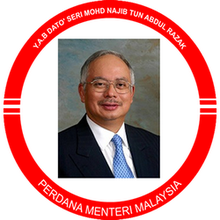


































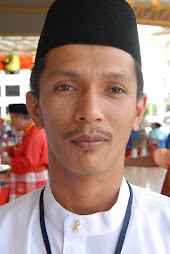

















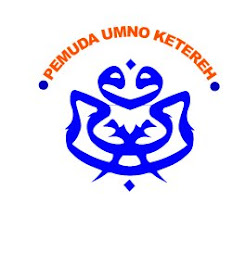
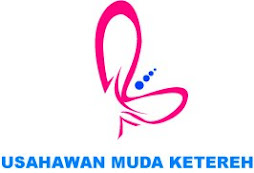

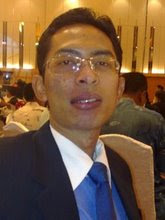
No comments:
Post a Comment